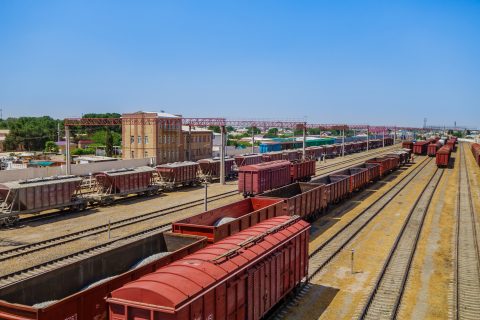Russian support or not, Hungary proceeds with Budapest bypass

Hungary is moving ahead with the V0 rail freight line bypassing Budapest, despite the complicated relationship it currently has with Russia. Russia vowed to support the construction of the east-west bypass in February this year, just before the war in Ukraine broke out. This financial support is now all but certain, but the mayor of Budapest is sending out positive signals about the project.
“We have started with the preparation of a new rail freight line bypassing Budapest”, the mayor of the Hungarian capital Gergely Karácson wrote on his Facebook page. What exactly he means by ‘preparation’ is unclear, but he states that the starting sign was given by the General Assembly of Budapest, at the suggestion of Imre László, Mayor of Újbuda, one of the districts of Budapest.
What is the V0 line?
V0 will connect Szolnok, which is located in the east of the country near the Zahony region, with the city of Győr, very close to the Hungarian border with Austria and Slovakia and not far from Bratislava and Vienna. The line bypasses the city of Budapest, which is a traffic bottleneck. The main aim of the line is to move international rail freight out of the city, making the V0 railway line a freight-only corridor.
Currently, it is impossible to run a freight train from east to west without passing the city. But in the city, trains have to slow down and share tracks with passenger trains. And as passenger traffic is prioritised, freight trains are bound to use fixed timetables. A freight-dedicated corridor will help solving these issues.
The V0 railway line will also improve the situation in the city. In the words of the mayor, freight traffic on the Southern Circular Railway in Budapest is extremely noisy, and diverting freight traffic would improve the living conditions of those living nearby the track in Budapest. The V0 must therefore be constructed, at any costs.

At which costs?
But what these costs are, is currently not clear. The exact amount depends highly on the route chosen, but this has only been done in a rough draft. In February, the Hungarian authorities announced it had selected the route Szolnok – Kecskemét – Székesfehérvár – Győr. But until now, nothing substantial regarding the construction has been announced.
What is more, the costs of the construction of an entire new line is substantial, and the Hungarian government is unlikely to be able to finance the project on its own. In February this year, the Russian government expressed its willingness to contribute to the project, both financially and with know-how. However, EU sanctions make such contribution impossible. Although there has been no official announcement regarding the cooperation on the project, the Russian support is unlikely to be continued as long as the war in Ukraine is ongoing.
At the same time, the support of the EU for Hungarian projects is also not taken for granted. Hungarian officials are currently in Brussels, lobbying for EU funds that were actually planned to be provided to Hungary, but have thus far not been granted in full. One of the officials in Brussels is the mayor of Budapest himself. He writes on his Facebook page that the funds are needed to achieve the climate goals of 2030.
You just read one of our premium articles free of charge
Want full access? Take advantage of our exclusive offer





